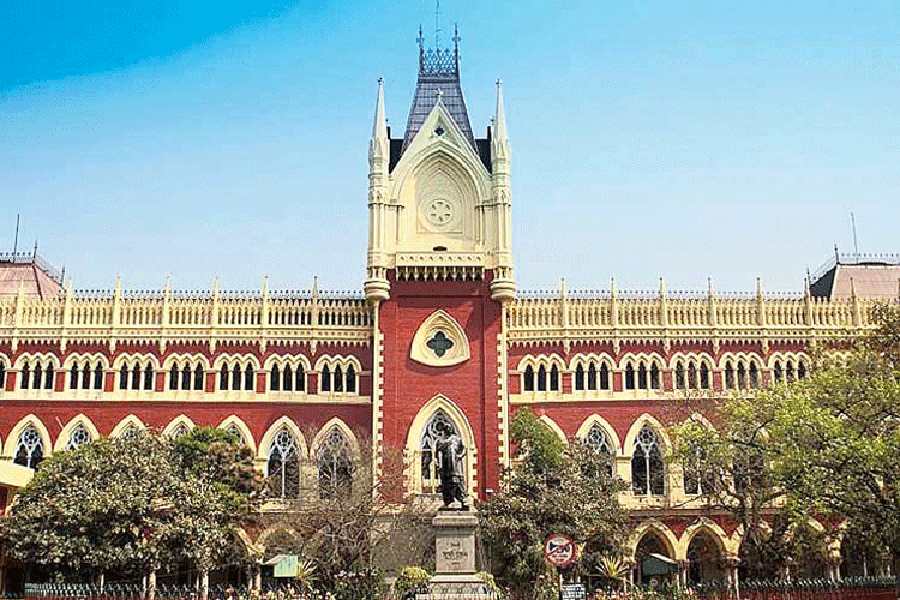The high court on Wednesday ordered a stay on the use of Sujay Krishna Bhadra’s voice sample as evidence in the probe related to the alleged recruitment irregularities in government-aided schools in Bengal.
Bhadra, who is an accused in the case, was made to give his voice sample to the ED last week following an order issued by the single-judge bench of Justice Amrita Sinha.
Bhadra moved an appeal against Justice Sinha’s order before the division bench of Justice Soumen Sen and Justice Uday Kumar.
The division bench on Wednesday passed an interim order disallowing the ED from using Bhadra’s voice sample as evidence in their probe and passed on the matter for hearing to the court of Justice Tirthankar Ghosh, who is also hearing Bhadra’s bail prayer.
Last week, acting on an order passed by Justice Sinha, ED officers had visited SSKM Hospital, where Bhadra is admitted, transported him to ESI Hospital in Joka and collected his voice sample.
The sleuths want to match the sample with the voice clips they had stumbled upon during the investigation.
Bhadra moved the division bench the next day alleging that Justice Sinha had passed the order for the collection of his voice sample without making him a party to the case.
ED officers on Wednesday submitted a compliance report in Justice Sinha’s court in regard to her order on the collection of Bhadra’s voice sample. Justice Sinha did not discuss the report in the court on Wednesday.
As Bhadra’s case has moved on to another court, Justice Sinha did not pass any order related to him.
She mentioned in the court that 94 posts had been left vacant because of the cancellation of illegal appointments and that the state had earlier said special posts would be created to fill up vacancies.
“I wanted to pass on this legal advice to the state,” she said.
At this, the government pleader said the state can create a post but appointing someone to the post would be the task of the primary education board, which is a statutory body.
Justice Sinha further requested the state to “settle this matter” and asked the government pleader to share the status during the next hearing on February 6.
